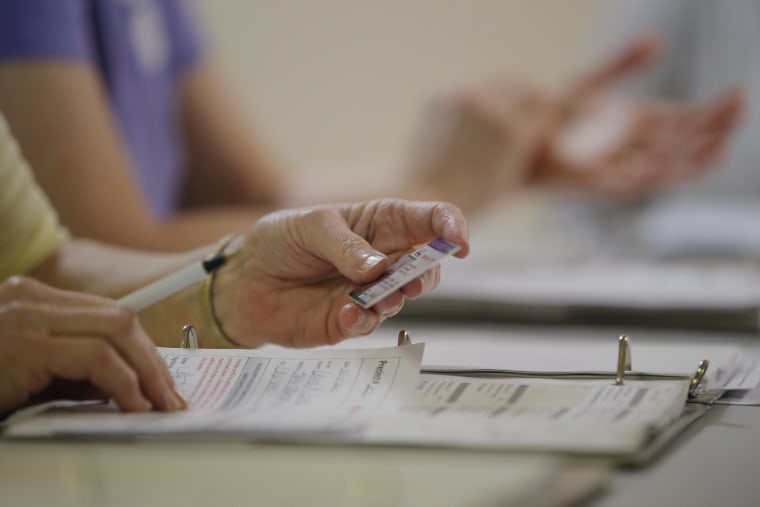The Republican-majority in North Carolina's General Assembly isn't addressing the election fraud that does exist, but it is addressing the threat of voter fraud that doesn't exist. The News & Observer in Raleigh reports:
The North Carolina General Assembly has finalized legislation implementing the voter photo identification mandate approved in a statewide referendum last month.The Senate voted 25-7 on Thursday to accept House changes to the measure and sent it to Democratic Gov. Roy Cooper, a voter ID opponent. Republicans in charge of the legislature can override a Cooper veto if they stay united.
If you're thinking that this sounds vaguely familiar, that's probably because GOP policymakers in the Tar Heel State approved a different voter-ID law in 2013 as part of a package of new voting restrictions. That package was later rejected by the courts, with the 4th Circuit Court of Appeals ruling in 2016 that the measure's provisions targeted African Americans "with almost surgical precision."
Donald Trump later nominated the architect of that plan, Thomas Farr, to a lifetime position as a federal judge.
This latest effort isn't quite as offensive -- it allows the use of student-IDs, for example, while the previous iterations did not -- but it will nevertheless almost certainly face resistance from North Carolina's Democratic governor. That said, given the size of the GOP majority in the legislature, the new bill is very likely to become law anyway.
That will be a step backwards for voting rights in the state, but it's especially jarring given the larger context: North Carolina is dealing with the most serious example of election fraud in recent American history.
If Republicans want to argue that there's no need to pass new measures to address the crisis, fine. Election fraud is already illegal, and so long as the perpetrators are held responsible and their efforts fail to succeed, there may not be a need for a legislative remedy.
But the circumstances are nevertheless breathtaking: North Carolina Republicans appear largely indifferent to the alleged crimes in the 9th congressional district, while scrambling to approve a voter-ID bill that has literally nothing to do with the alleged attempt to steal a congressional seat.
Meanwhile, as the investigation into what happened in the 9th continues, Dallas Woodhouse, the executive director of the North Carolina Republican Party, reportedly told CNN this morning that he would endorse holding a new congressional election in the district if the allegations of election fraud prove true. I believe that's a new position for the state party and it increases the likelihood of the solution.
In related news, a Republican state representative this week introduced a new plan that would, as the HuffPost explained, "require election boards in every county in the state to be chaired by a member of the political party with the highest number of registered voters in odd-numbered years. During even-numbered years, the boards would be chaired by a member of the party with the second-highest number of registered voters."
Because registered Democrats outnumber Republicans in North Carolina, the bill would have the practical effect of putting a Republican in charge of every election board in the state.
